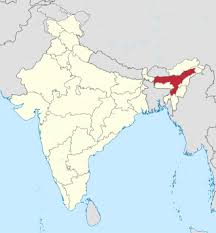Discovering Assam: Culture, Nature, and Latest Developments

Introduction
Assam, located in the northeastern region of India, is renowned for its rich cultural heritage, diverse wildlife, and lush landscapes. As one of the largest states in the region, Assam plays a crucial role in India’s ecology and economy. The state is home to the iconic Kaziranga National Park, a UNESCO World Heritage Site, and is famous for its tea plantations that contribute significantly to both local and national economies. Recent developments in tourism and sustainable practices in Assam highlight its growing importance on both national and international platforms.
Cultural Heritage
Assam is a melting pot of various ethnic communities, with a history deeply rooted in traditions and festivals. The Bihu festival, celebrated thrice a year, marks the agricultural cycle and showcases the vibrancy of Assamese folk music, dance, and cuisine. Additionally, the state’s unique arts and crafts, such as Assamese silk weaving and bamboo crafts, illustrate a rich artisanal legacy that attracts visitors and supports local economies.
Natural Riches
The state’s biodiversity is one of its most significant assets, with the Brahmaputra River flowing through its heart. This river system supports myriad ecosystems, leading to a rich variety of flora and fauna. Kaziranga National Park is particularly famous for its population of the Indian one-horned rhinoceros. Recent conservation efforts have also aimed to protect the habitat of rare species like the swamp deer and pelicans, making Assam a pivotal region for wildlife conservation.
Current Developments
In recent years, the Assam government has made concerted efforts to enhance infrastructure to boost tourism. This includes not only improved road connectivity but also initiatives aimed at promoting sustainable tourism. The government is also focused on developing eco-sensitive tourism spots, which encourage responsible travel while preserving the region’s natural beauty. Furthermore, with the increasing popularity of ‘Northeast India’, Assam is poised to become a major hub for ecotourism, attracting visitors interested in both adventure and nature.
Conclusion
Assam stands as a testament to the harmony of culture and nature, playing a significant role in the tapestry of India. As it moves forward with sustainable practices and tourism development, the state not only enhances its economic prospects but also showcases its unparalleled beauty and unity in diversity. With its potential increasingly recognized, Assam is sure to capture the interest of travelers and conservationists alike, solidifying its position on both domestic and global stages.


